
Paving the Way for People’s Participation
The editorial of Arman Emrooz argues that to increase people’s participation and role in the elections; officials must allow candidates from different political currents to run and clarify for voters why the upcoming elections matter and what is at stake for them.
The philosophy of establishing a government is to meet people’s demands, so any government must pave the way for realizing people’s dreams, hopes and expectations. Accordingly, people must have the right to determine their own destiny. Thus, the government must prepare the ground for their people to participate and play roles in all fields so that they can determine their own destiny.
The recent remarks of Iranian Supreme Leader Ali Khamenei were in the same line, which are to be interpreted as people’s rights regarding the government. This issue is studied as “political participation” in political sociology.
There are four requirements for political participation. First is the subject of participation. Second is the issue of limitations in which the existing limits are identified. Third is the question of common interests, which must be elucidated for the people. For example, in the case of elections, each individual must know what the advantages and benefits of their participation will be and what they are going to gain by taking part in the polls. Fourth is explaining to people the extent of each voter or participant’s involvement in the issue —the polls in this case.
If these conditions are met, voters will become active and participate in the elections. Otherwise, simply inviting people to vote will not guarantee their participation.
When the supreme leader directs officials to pave the way for people’s participation, he means preparing the ground for people to participate in the elections, which requires allowing candidates from different political backgrounds to run.
In the case of the forthcoming elections for the Parliament and Assembly of Experts, extensive clarifications must be provided to people regarding their significance. Or else the necessary energy and motivation for participating in these elections will not be created.
The US Attack on Yemen
The editorial of Arman Melli predicts that the US-led coalition’s recent attacks on the Houthis will probably not be successful in stopping them from targeting commercial ships in the Red Sea, as the Houthis will not refrain from attacking Israeli ships until the war in Gaza comes to an end.
The recent measure of the United States in attacking Yemen shows to what extent the United States is unilaterally backing the Zionist regime, and, without paying attention to its own national and security interests, it has taken a significant risk that might endanger US interests in the world. That is why US lawmakers have objected to Biden taking this measure without US Congress ratification and explains why people have gathered in front of the White House demanding that the United States not get involved in this conflict.
In any case, the US administration is acting in contradiction with public opinion in the United States and the world. It is ready to pay any price for defending the interests of the Zionist regime. It is unprecedented in US history for its administration to enter the issue of Palestine and pay such a price for it unconditionally and unilaterally.
The Yemenis are serious in their move: If the war in Gaza continues, humanitarian aid does not reach Gaza and the Zionist regime does not accept the ceasefire, they will not change their minds. But the Americans have taken this measure and, along with the UK, stood by Tel Aviv.
If Bab al-Mandab and the Red Sea turn into an arena for the UK and US navies, many countries will not dare to use this strait anymore which will be a heavy blow for the global economy and trade.
In the operation against the Houthis, the Americans want to make their stance clear, but the Yemenis will probably not change their position. They will continue to attack Israeli ships in the Red Sea until the war in Gaza comes to an end.
Given the international pressure, the Zionist regime must accept the ceasefire, open the paths for humanitarian aid and stop its crimes. If the world is after establishing peace, it must put pressure on Israel instead of targeting the Yemenis who are acting in defense of the Gazans.
Conditions for Maximum Participation in Elections
The editorial of Arman Melli argues that to maximize popular turnout in the upcoming elections, different political groups and currents must be allowed to compete with each other seriously.
Iranian Supreme Leader Ali Khamenei outlined the four tenets of a successful election four months ago: competition, participation, health and security. Recently, he underscored these principles for holding a splendid election to pave the way for participation in the country’s political sphere. However, the performances of some executive and monitoring bodies have fueled speculation that turnout in the upcoming elections will be low.
Elections are held to pave the way for participation in power, while political groups work hard to find a place in the power structure. And when they gain a share in power, they are obliged to pave the way for implementing the plans they promised to their supporters.
Under the circumstances, when the candidates who are critical of the government have been filtered by monitoring bodies, no rival candidate is left to participate in the elections. The other point is that elections mean having the right to choose. Except for the “hardliners” who staunchly endorse Ebrahim Raisi’s government, the main “reformist” and moderate candidates have been disqualified and eliminated from the elections by the monitoring bodies.
So, suppose the government and monitoring entities want to take the supreme leader’s remarks seriously and implement them. In that case, they must postpone the upcoming elections for two months and allow all political currents and individuals to run in the elections.
High turnout in elections requires serious competition — not silencing the voices of other groups and currents. In the meantime, the “reformists” have always proved their faith in democracy, holding that the ballot boxes guarantee sovereignty and urging that people’s votes must decide the country’s destiny.
Insolvency of Banks
The editorial of Servat explains why the insolvency of banks in Iran is primarily due to the fact that Iranian governments treat them as cashboxes from which they withdraw money whenever they want to.
The crisis in the banking sector in the form of bankruptcy or illiquidity has systematic repercussions for the economic, social and political domains, which is why the management and containment of bankruptcy of financial institutions have been separately discussed. Within the legal framework of Iran, the issue of bankruptcy of financial institutions has been treated like the traditional bankruptcy of entrepreneurs.
However, the nature and significance of these institutions within the economic system and the necessity of convergence with domestic and international banking laws and regulations require predicting and implementing separate rules for the bankruptcy of financial institutions.
A bank is considered insolvent when it cannot fulfill its financial and non-financial obligations to its depositors. Usually, banks try to save themselves by getting loans from other banks. But when there are rumors regarding the insolvency of a bank, depositors rush to the bank to withdraw their deposits, which, in turn, accelerates the bankruptcy process. In such cases, this bank has to sell itself and its assets to other banks at lower prices to pay back its debts.
According to experts, the insolvency of banks in Iran is caused by various factors, including offering compulsory facilities, difficulty in providing liquidity and lack of transparency in real assets.
Earlier last year, the governor of the Central Bank held a meeting with the bank CEOs, stating that these banks would have six months to amend their balance deficits. Farzin underscored that the banks with deficits had to reform their situations by the end of last summer, or else the only solution would be liquidating them.
According to Farzin, the current situation is mainly due to the conditions and performance of certain banks, making it impossible to implement policies for controlling inflation properly and effectively.
Talking about what leads to the insolvency of banks, an expert underscored that implementing the policies prescribed by the government is one of the leading causes of bankruptcy in the banking sector. The banking sector’s problems and challenges will continue so far as governments see banks as cashboxes from which they can withdraw whenever they want to.

Tehran Ready to Welcome Saudi Entrepreneurs to Iran
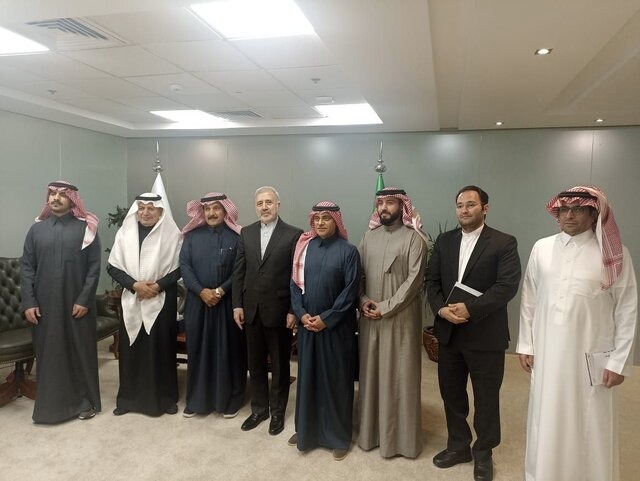
The Iranian ambassador to Riyadh met with Chairman of Saudi Arabia’s Chamber of Commerce Hassan al-Huwaizi,
According to ISNA, in this meeting, Iranian Ambassador Alireza Enayati pointed to the initial agreement for expanding multilateral relations and the role of the economy and trade in consolidating bilateral ties, adding that Iran welcomes the entry of Saudi entrepreneurs into Iran.
Enayati stated that Iran and Saudi Arabia have an abundance of capacities in industry, agriculture, technical and engineering services, energy and tourism and can cooperate to move toward development and prosperity.
Huwaizi underscored Saudi Vision 2030, adding that both countries’ private sectors can welcome cooperation through exchanging delegations and creating common ties.
Journalists Who Reported Mahsa Amini’s Killing in Custody Released, Charged Again a Day After
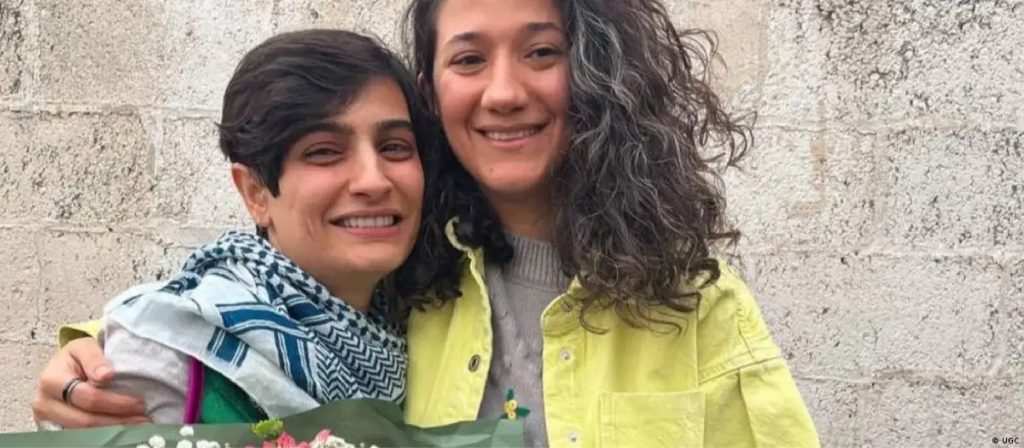
Niloufar Hamedi and Elaheh Mohammadi, who were temporarily released on a hefty bail after 17 months in jail for reporting the killing in custody of Mahsa Amini, are facing a new “charge” one day after leaving prison.
Hamedi and Mohammadi were the first journalists who reported on how 22-year-old Amini was arrested by the morality police for “improper hijab” and died while in custody.
Images and video clips of the moments of their release, showing both without hijab, have been widely disseminated in Iran and the world.
Iran’s judiciary has filed a new case against these journalists who worked for Ham Mihan and Shargh dailies.
“After the temporary release of two female security defendants, images of their unveiling were published on cyberspace. Following this measure, in addition to pressing charges, a new case for these defendants has been filed in Tehran’s Public and Revolutionary Prosecutor’s Office,” announced the judiciary’s Mizan News Agency.
Similarly, the Tehran prosecutor said that the court would issue and announce the journalists’ sentences in the near future.
Their imprisonment was not legal, even according to the country’s laws. According to Ham Mihan daily, the journalists should have been released immediately after initial interrogations; however, their detention period continued against the law.
Ham Mihan daily also criticized the journalists’ closed trial, asking if those who pressed the charges and the related security bodies were truly sure of the charges, why did they not let people be in the loop about the process?
The judiciary has accused Hamedi and Mohammadi of “collaboration with the hostile US government, assembly and collusion to commit crimes against national security and propaganda activities against the Islamic Republic establishment,” sentencing Hamedi to seven years and Mohammadi to six years behind bars.
The new charge brought against these two journalists, namely, refusing to wear obligatory hijab, is what women are being punished for in different forms in Iran daily. Despite the bloody suppression of the Woman, Life, Freedom movement, the ruling establishment has failed in this arena.
IRGC Missile Attack on Iraqi Kurdistan; Baghdad Recalls Ambassador From Iran
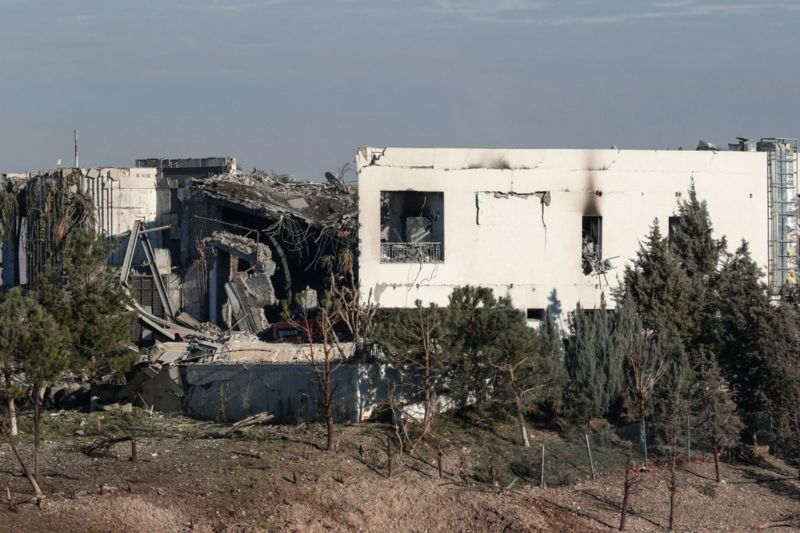
Following IRGC missile strikes on Iraqi Kurdistan, Iraq recalled its ambassador from Tehran and summoned Iran’s chargé d’affaires in this country.
Earlier, the US State Department had condemned the IRGC’s missile attack on Iraqi Kurdistan, while Iraqi Kurdistan’s officials called Iran’s measure an “unjustifiable terrorist act.”
On Tuesday morning, the IRGC announced in several statements the targeting of certain regions in Iraqi Kurdistan with missiles. In its statements, the IRGC claimed “destroying Mossad’s espionage headquarters” in Erbil, as well as striking an ISIS center in Syria with 24 ballistic missiles.
Iraqi National Security Advisor Qassem Al-Araji denied the IRGC’s claim, adding that “concerning the alleged presence of a headquarters of Israel’s Mossad, we visited the house, we inspected every corner of it and everything indicated it was the family home of an Iraqi businessmen.” He called these allegations “false and incorrect.”
US State Department Spokesperson Matthew Miller strongly condemned Iran’s attack against Erbil and said in a statement, “We oppose Iran’s reckless missile strikes which undermine Iraq’s stability.”
According to Iraqi Kurdistan officials, in the IRGC’s missile strikes on the city of Erbil, at least four civilians were killed and six others wounded.
Earlier, the American ABC news channel had quoted security officials reporting that at least eight different locations in Erbil close to the US consulate and residential areas were targeted by missiles.
The Iraqi government has confirmed that multimillionaire Kurdish businessman Peshraw Dizayee was targeted and killed in Iran’s missile strikes. According to Kurdish and Arabic media, Dizayee’s 11-month-old baby was killed, and his wife and two children were wounded. An Iraqi businessman and a Filipino woman were also killed in these attacks.
Rising Trend of Women Being Violently Arrested for Not Wearing the Hijab
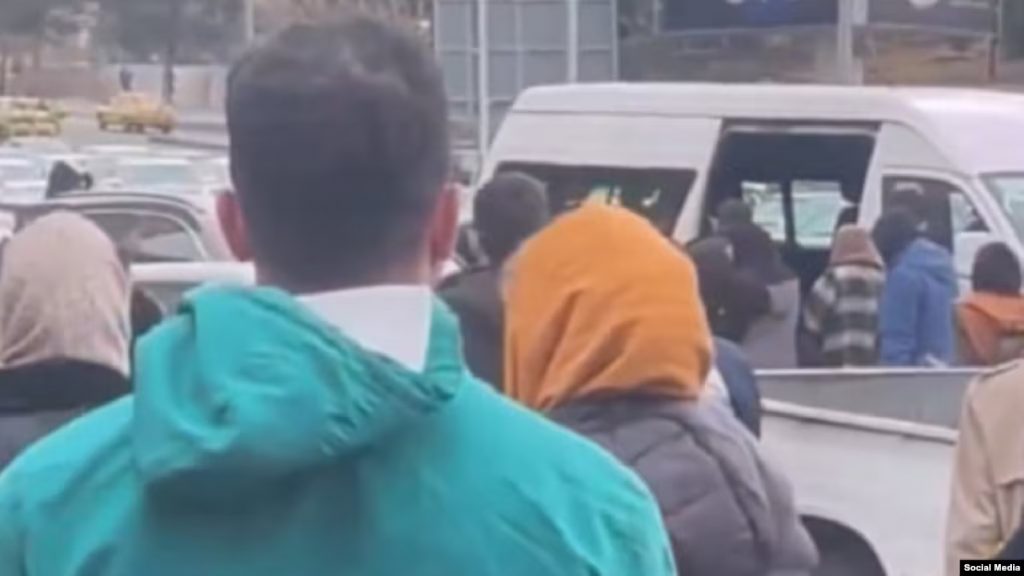
A woman was forced out of her car, tasered, and taken by police for not wearing hijab in her own car in northern Tehran.
In a video clip of this confrontation, which has gone viral on social media, female and male police officers are seen carrying a woman into their van.
Tehran police later issued a statement saying the woman’s car had been seized before due to her being unveiled. Tehran police also claimed that the forces of the “public security police” had “demanded the driver” to let the police seize her car “according to the law.”
“This person initially refused to obey the order – which after she was given necessary explanations, the law was enforced,” noted the Tehran police statement, adding, “Any other information posted on social media in this regard is not true.”
The number of vehicles being seized in relation to obligatory hijab has mounted. Many Iranian citizens have said their cars were suddenly seized and carried away by police. Some even said the whole operation resembled that of “chasing criminals.”
Journalist Elaheh Ebrahimi reported that recently a number of plainclothes men forced her to stop and asked for her documents. Ebrahimi said that after her objection, one of the men showed her his “gun,” saying her vehicle was seized and she needed to go to the police station with them.
Meanwhile, Iran-based lawyers call vehicle seizures for hijab illegal, “Law enforcement and police forces have no right to confiscate and seize instruments of crime (vehicles),” Hoshang Pourbabaei told Khabar Online, “Also, sending text messages of warnings about unveiling is against the law.”
Following the Woman, Life, Freedom protest movement in Iran, pressures on women have escalated, with many of them saying they have received text messages about obligatory hijab or their cars have been seized.
Iran; Lowest Quality of Internet in 2023
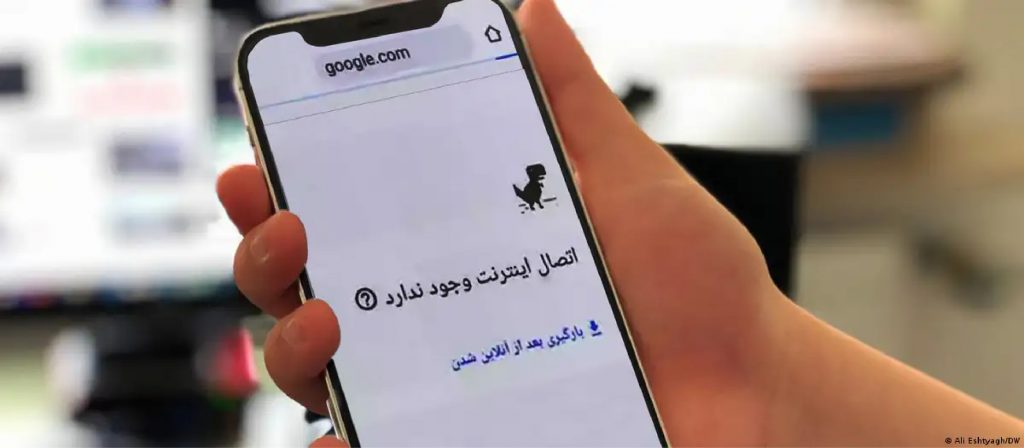
According to a report by the Tehran Electronic Commerce Association, the internet in Iran we had the lowest quality in the world in 2023.
The Internet and Infrastructure Commission of the Tehran Electronic Commerce Association announced the results of its study on internet conditions in 50 countries based on the three criteria of disruption, restrictions, and internet speed.
The report covers the last nine months of 2023, taking its data from OONI, the world’s largest open dataset on internet censorship, which monitors the internet in different countries.
According to this report, of 50 countries, Iran ranks 47 on the disruption index, 49 on the restrictions index and 50 with regard to speed.
The report states that the highest level of disruption in internet services in Iran is between 5 pm and 11 pm local time when there is an increase in internet use.
In this study, Iran, Pakistan and India are the three countries with the most self-imposed (political) outages and disruptions to the internet.
The report adds that despite multiple organizations deciding on internet censorship, the Iranian president — who has enough power and control to improve the internet quality in the country — must be held accountable more than anybody else for the internet quality in Iran.
Since Ebrahim Raisi’s government has taken office, internet censorship has increased. According to the abovementioned report, the width of international broadband used in Iran has not only not increased compared to the previous government but has considerably decreased.
In the first version of its report released last summer, the Tehran Electronic Commerce Association described internet conditions in Iran as “critical.” In its second report, despite minor changes, the internet in Iran has undergone no considerable changes compared to the previous summer and its conditions are described as “precarious.”
According to the report, one of the reasons why the current situation of the internet in Iran is precarious is because it is impossible to access it without using anti-filtering tools.
